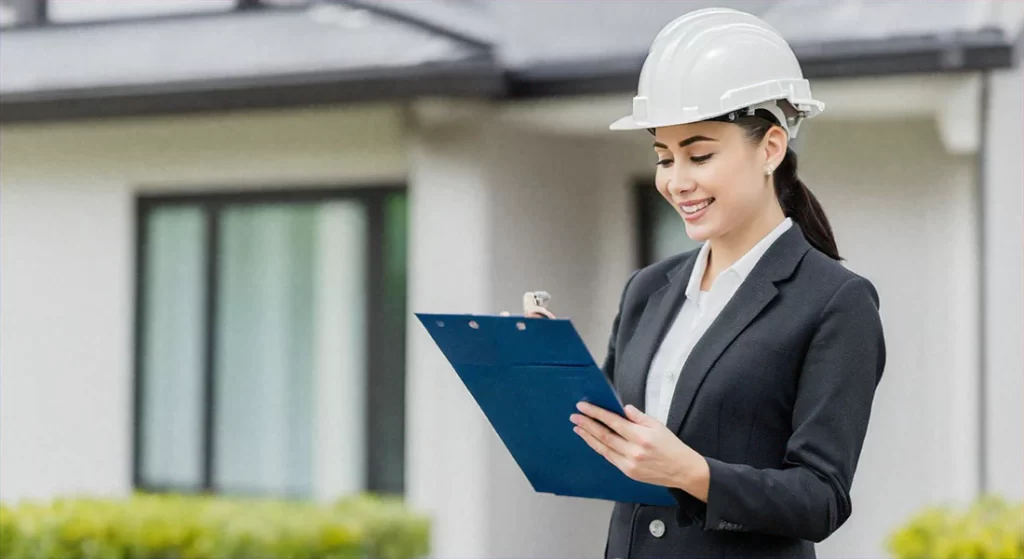How to Choose a Certified Professional for Your Building Inspection

A building inspection is a crucial step in assessing a property’s structural integrity, safety, and compliance with local regulations. Whether buying, selling, or maintaining a property, hiring a certified professional ensures that you receive a detailed and accurate evaluation of its condition.
Selecting the right expert for your Inspectiprop Building Inspection can make a significant difference in identifying potential issues, preventing costly repairs, and ensuring long-term value. Here’s a guide on how to choose a qualified building inspector.
1. Verify Certifications and Licensing
A professional building inspector should have valid certifications and licenses to conduct inspections legally and reliably.
✔ Certifications from recognized industry organizations, such as:
- InterNACHI (International Association of Certified Home Inspectors)
- ASHI (American Society of Home Inspectors)
- ANIEB (Association nationale des inspecteurs et experts en bâtiments) in Quebec
✔ Provincial or state licensing ensures compliance with building codes and industry standards.
Hiring a certified inspector guarantees that your building inspection follows professional guidelines.
2. Look for Experience in Residential and Commercial Inspections
Experience matters when it comes to identifying structural and system-related defects in a property.
✔ How long has the inspector been in business?
✔ How many inspections have they completed?
✔ Do they specialize in residential, commercial, or both types of properties?
An experienced inspector can spot hidden defects that less experienced professionals might overlook.
3. Check Customer Reviews and Reputation
A reputable inspector will have positive reviews and testimonials from past clients.
✔ Read Google, Yelp, and real estate website reviews.
✔ Ask for references from previous clients.
✔ Look for consistency in feedback, particularly regarding thoroughness, professionalism, and clarity of reports.
Hiring an inspector with a strong reputation ensures quality service and reliability.
4. Ask for a Sample Inspection Report
A detailed and well-organized report is essential for understanding the results of an inspection.
✔ Request a sample report to see the level of detail included.
✔ Look for clear explanations, high-quality images, and an organized layout.
✔ Ensure the report includes recommended repairs and estimated costs.
A well-structured report helps property owners make informed decisions about maintenance or negotiations.
5. Ensure the Inspector Uses Modern Technology
Building inspections have evolved with the use of advanced tools and technology.
✔ Thermal imaging cameras detect hidden moisture or insulation issues.
✔ Moisture meters identify potential water damage in walls and floors.
✔ Gas leak detectors ensure the property’s safety.
✔ Drones can inspect roofs and hard-to-reach areas.
Choosing an inspector who utilizes modern inspection tools improves the accuracy and thoroughness of the evaluation.
6. Understand the Scope of the Inspection
Not all building inspectors provide the same level of service. Before hiring, clarify:
✔ What areas of the property are included?
✔ Will the inspection cover electrical, plumbing, roofing, foundation, and HVAC systems?
✔ Are additional inspections for mold, radon, asbestos, or pests available?
Knowing exactly what the inspection covers ensures nothing important is overlooked.
7. Compare Pricing and Services
While cost should not be the only deciding factor, it’s important to understand the pricing structure.
✔ Get quotes from multiple inspectors for comparison.
✔ Avoid inspectors offering unrealistically low prices, as this may indicate a lack of experience.
✔ Ask whether the price includes a full written report or if there are extra charges for additional services.
Investing in a thorough inspection saves money in the long run by identifying costly repairs upfront.
8. Ask About Post-Inspection Support
A professional building inspector should be available for follow-up questions and clarification.
✔ Will the inspector explain the report in detail after the inspection?
✔ Do they provide recommendations for maintenance and repairs?
✔ Can they assist with interpreting building codes and regulations?
Having access to post-inspection support ensures property owners fully understand the findings.
9. Look for an Independent, Unbiased Inspector
Some inspectors may have ties to real estate agents or sellers, which could create a conflict of interest.
✔ Choose an independent inspector who works exclusively for you.
✔ Avoid professionals who rush through inspections or provide vague reports.
✔ Look for transparency in their methods, findings, and recommendations.
An unbiased inspector provides a trustworthy assessment of the property’s condition.
10. Schedule the Inspection at the Right Time
To get the most accurate inspection results, timing is crucial.
✔ For buyers – Schedule the inspection before finalizing a purchase to uncover any issues.
✔ For sellers – Conduct a pre-listing inspection to fix problems before putting the property on the market.
✔ For current owners – Regular building inspections help identify maintenance needs and avoid costly repairs.
Timely inspections ensure smooth real estate transactions and long-term property value.
Conclusion
Choosing a certified and experienced building inspector is essential for a thorough and accurate property evaluation. By verifying certifications, experience, reputation, and use of modern technology, property owners can ensure they receive reliable inspection services.








